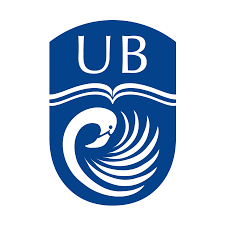Faculty Workload: Towards a More Equitable Assignment and Evaluation
DOI:
https://doi.org/10.15362/ijbs.v7i0.18Abstract
This paper reviews selected literature on workload, noting critical issues and efforts directed at a more equitable estimation, assignment and evaluation of faculty workload. It underlines the need to consider all factors and aspects of faculty work in assigning and evaluating workload. A flexible approach to evaluation is advocated since faculty have different strengths and interests and departments have different demands and requirements. It is also suggested that flexible formulas may be applied in evaluating faculty at the College of The Bahamas and that they need not be measured in an identical or uniform manner.References
Blackburn, R. T., Lawrence, J. H., Bieber, J. P., & Trauvetter, L.(1991). Faculty at work: Focus on teaching Research in Higher Education,32(4), 363-379. https://doi.org/10.1007/BF00992182
Boyer, E. L. (1990). Scholarship reconsidered: Priorities of the professoriate. The Carnegie Foundation for the Advancement of Teaching. https://depts.washington.edu/gs630/Spring/Boyer.pdf
Combs, L. L. (1986). Workload, evaluation and raises. Proceedings of Faculty Evaluation and Development: Lessons Learned, 22, 208-217.
Diodato, V. (1983). Faculty workload: A case study. Journal of Education for Librarianship, 286-295. https://doi.org/10.2307/40322755
Hammons, J., & Schade, H. (1983). A museum piece: Faculty workload by credit hours. Community and Junior College Journal, 54(3), 37-39. https://eric.ed.gov/?id=EJ292040
Hauck, G. F. (1969). Estimating faculty workload. Engineering Education, 60(2), 117-119. https://eric.ed.gov/?id=EJ011732
Hill, A. J. (1969). Measuring faculty workload. Engineering Education, 60(2), 92-96. https://eric.ed.gov/?id=EJ011731
Kremer, J. (1991). Identifying faculty types using peer ratings of teaching, research, and service. Research in Higher Education, 32(4),351-361. https://doi.org/10.1007/BF00992181
Leigh, F. A., & Anderson, D. A. (1992). A balance of study and teaching in tenure and promotion cases. The Journalism Educator, 47(1), 74-79. https://doi.org/10.1177/107769589204700108
Magnusen, K. O. (1987). Faculty evaluation, performance, and pay: application and issues. The Journal of Higher Education, 58(5), 516-529. https://doi.org/10.1080/00221546.1987.11778277
Mancing, H. (1991). Teaching, research, sService: The concept of faculty workload. ADFL bulletin, 22(3), 44-50. https://doi.org/10.1632/adfl.22.3.44
McLaughlin, G. W., Mahan, B. T. & Montgomery, J. R. (1983). Equity among assistant professors in instructional work load. Research in Higher Education, 18(2), 131–143 https://doi.org/10.1007/BF00992058
Mooney, C. J. (1992, October 28). Critics within and without academe assail professors at research universities. Chronicle of Higher Education, 39(10), 17-19.
Mooney, C. J. (1992, March 25). Syracuse seeks a balance between teaching and research. (Cover story). Chronicle of Higher Education, 38(29), 14-16.
Mooney, C. J. (1992, March 25). Syracuse tries to involve others in teaching-vs.-research debate. Chronicle of Higher Education, 38(29), A16.
Morrow, R. D. (1990). Faculty workload policies in schools of education: Emerging questions. Teacher Education Quarterly, 1(3), 53-58. https://www.jstor.org/stable/23475441
Savoie, M. J., & Sawyerr, O. O. (1991). Faculty promotions and tenure decisions: A proposed model. Journal of Education for Business, 66(5), 278-282. https://doi.org/10.1080/08832323.1991.10117485
Seldin, P. (1980). Successful faculty evaluation programs. Coventry Press.
Soderberg, L. O. (1985). Dominance of research and publication: An unrelenting tyranny. College Teaching, 33(4), 168-172. https://doi.org/10.1080/87567555.1985.10532314
Watkins, B. T. (1990, May 16). New technique tested to evaluate college teaching. Chronicle of Higher Education, 36(35), A15-17.
Winkler, A. M. (1992). The faculty workload question. Change: The Magazine of Higher Learning, 24(4), 36-41. https://doi.org/10.1080/00091383.1992.9937117
Yuker, H. E. (1984). Faculty workload: Research, theory, and interpretation. ASHE-ERIC Higher Education Research Report No. 10, 1984. Association for the Study of Higher Education. https://files.eric.ed.gov/fulltext/ED259691.pdf








